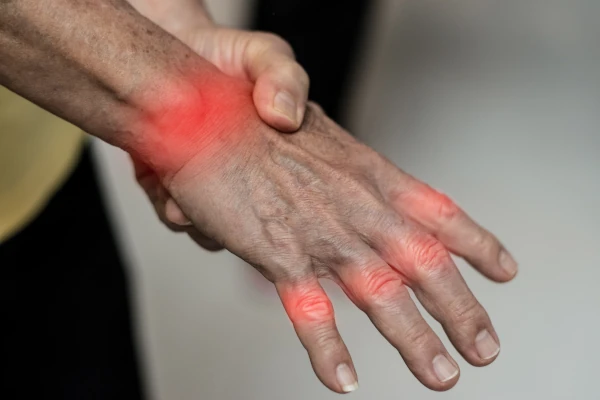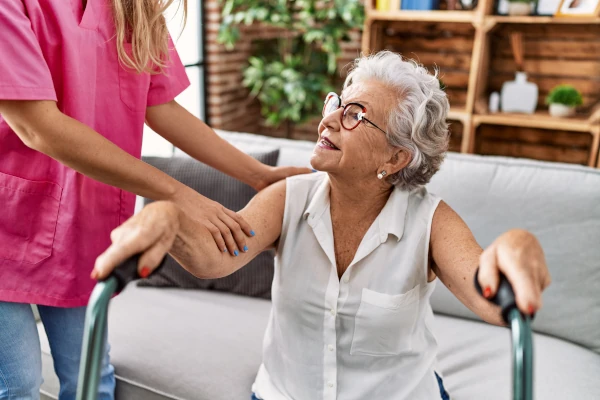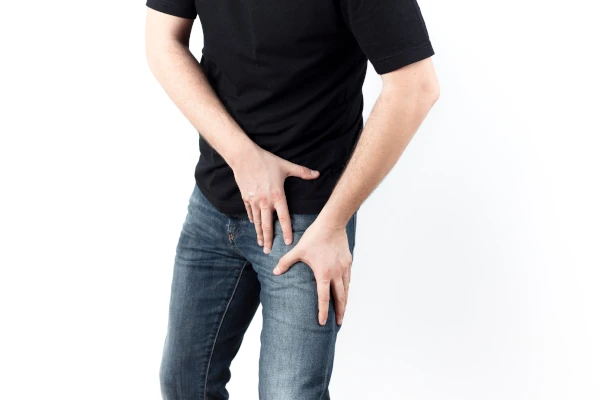
How to Relieve Arthritis Joint Pain and Swelling Naturally: Best Diet, Exercises & At-Home Tips
- Dr. Nitika Sharma (MPT)
Connect with our expert physiotherapist for personalized physiotherapy advice.
Arthritis affects millions worldwide, causing joint pain, swelling, and stiffness that can impact daily life. While medication plays a role in management, many people seek natural ways to relieve arthritis pain and inflammation. The good news? A combination of diet, exercise, and simple at-home remedies can make a real difference in reducing discomfort and improving mobility.
In this blog, we will explore natural remedies that help ease joint pain and swelling — without relying solely on medications.
Best Anti-Inflammatory Diet for Arthritis Relief
a. Foods That Help Reduce Joint Inflammation- Fatty fish (salmon, sardines, mackerel)
- Leafy greens (spinach, kale, broccoli)
- Berries (blueberries, strawberries)
- Nuts and seeds (walnuts, flaxseeds)
- Turmeric
- Olive oil
- Processed and packaged foods
- Sugary beverages and snacks
- Fried foods
- Excess red meat
- Refined carbs (white bread, pastries)
Home Remedies to Ease Arthritis Pain
- Warm Compress & Cold Therapy:
Use warm compress to relax joints and cold packs to reduce swelling.
- Epsom Salt Soaks:
Soaking in Epsom salt baths eases discomfort due to magnesium.
- Turmeric & Ginger Tea:
Daily consumption helps reduce inflammation.
- Massage with Essential Oils:
Use eucalyptus, lavender, or peppermint oils diluted in carrier oil.
Gentle Exercises for Joint Flexibility & Strength
- Walking
Regular walking can also boost mood and increase overall stamina, making it an excellent exercise for people of all ages and fitness levels.
- Swimming or Water Aerobics
Swimming and water aerobics provide a low-impact, full-body workout that is gentle on the joints while building cardiovascular endurance, muscle strength, and flexibility.
- Tai Chi or Yoga
Tai Chi and Yoga are mind-body practices that combine gentle movements, breathing exercises, and meditation. Yoga offers a variety of poses that target different muscle groups and improve posture and overall body awareness.
- Resistance Band Training
Resistance band training uses elastic bands to provide adjustable resistance during exercises, helping to build and tone muscles safely and effectively. This type of training is best if done under guidance of physiotherapist.
Adding physiotherapy-based exercises to your routine can significantly reduce pain and improve joint function:
- Quad Sets:
Sit or lie down with legs straight, tighten the muscles on the top of your thigh and hold for 5–10 seconds. Repeat 10–15 times for each leg.
- Heel Slides:
Lie on your back and slowly slide one heel toward your buttocks, then slide it back. Repeat 10 times on each side.
- Shoulder Rolls:
Roll your shoulders forward and backward to improve joint lubrication and posture.
- Wrist & Finger Flexibility Exercises:
Gently bend and extend wrists and fingers to maintain range of motion and reduce stiffness in small joints.
Pro Tip: Always warm up before exercise and stretch afterward to avoid stiffness.
Daily Lifestyle Habits That Make a Difference
- Maintain a Healthy Weight
- Get Quality Sleep
- Stay Hydrated
- Manage Stress through deep breathing or meditation
When to See a Physiotherapist
If joint stiffness or pain limits your mobility, a physiotherapist can design a personalized exercise program to maintain joint health and reduce flare-ups.
Conclusion
Managing arthritis pain doesn’t always require prescriptions. By adopting an anti-inflammatory diet, engaging in gentle exercises, using home remedies, and maintaining a healthy lifestyle, you can experience noticeable relief from arthritis symptoms — naturally.
Start small. Even a few changes in your daily routine can reduce joint pain and help you live a more active, comfortable life.
Frequently Asked Questions (FAQs)
- Can arthritis go away naturally?
While arthritis cannot be cured, symptoms can be significantly managed through natural lifestyle changes and therapies.
- Are there any side effects to natural remedies?
Some herbs or supplements may interact with medications. Always consult your healthcare provider before starting any new remedy.
- How quickly will I feel relief from lifestyle changes?
Results vary, but many people report improvement within a few weeks of consistent changes to diet, exercise, and self-care.
- Is walking good for arthritis in knees?
Yes, low-impact walking helps keep joints flexible and strengthens the muscles around them. Just avoid overexertion.
Connect with our expert physiotherapist for personalized physiotherapy advice.



